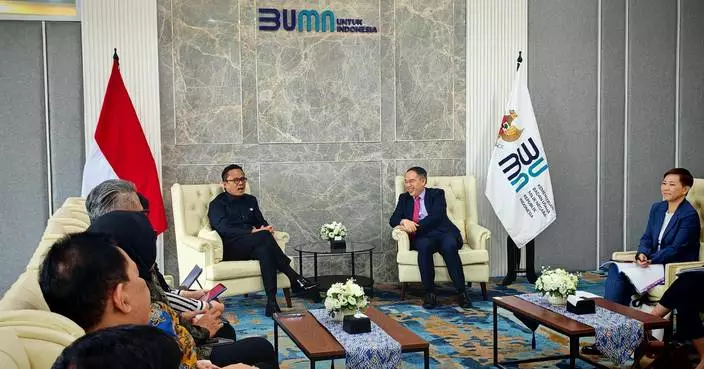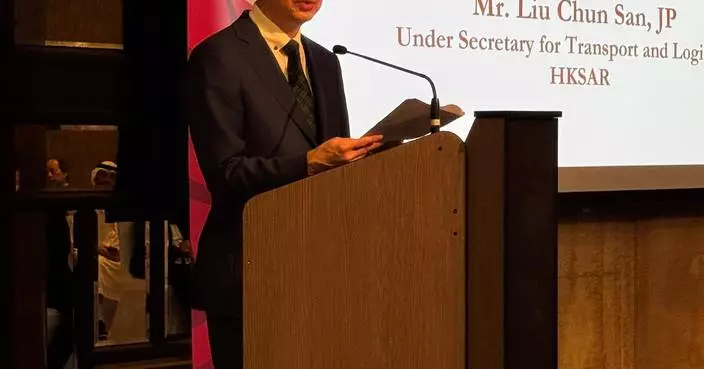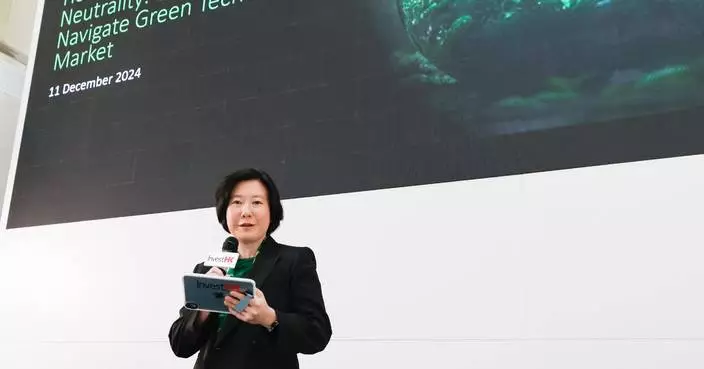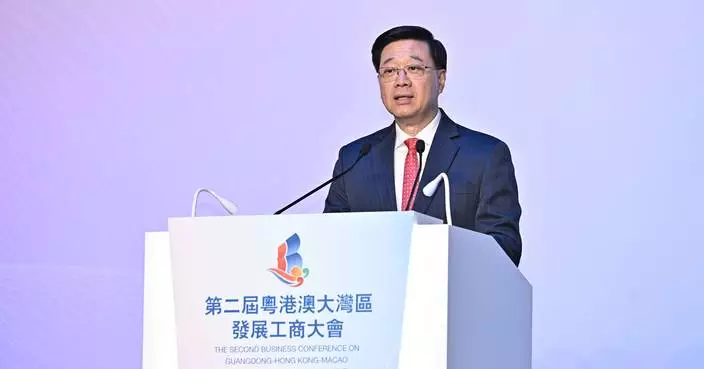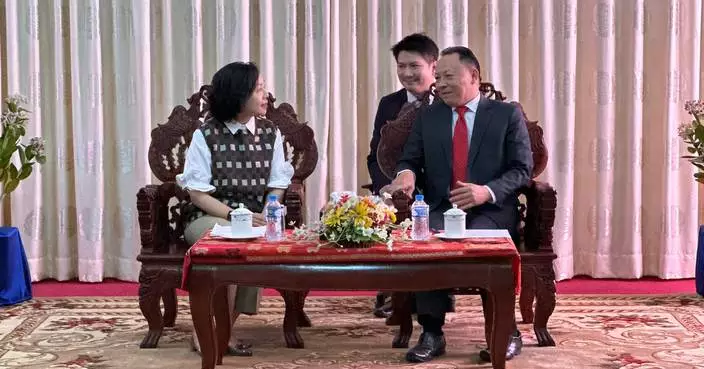November's monthly gravidtrap index for Aedes albopictus mosquitoes drops from October level
The Food and Environmental Hygiene Department (FEHD) today (December 11) announced that the monthly gravidtrap index for Aedes albopictus mosquitoes in November dropped to 0.6 per cent from 2 per cent in October, which remained at the lowest Level 1, indicating that the distribution of Aedes albopictus mosquitoes in the areas surveyed was not extensive.
In November, all the 64 survey areas were recorded with a gravidtrap index lower than the alert level of 20 per cent. Moreover, the monthly density index for Aedes albopictus in November was 1.1, which represented that an average of 1.1 Aedes albopictus adults were found in the Aedes-positive gravidtraps, indicating that the number of adult Aedes albopictus was not abundant in the survey areas. The gravidtrap and density indices for Aedes albopictus in different survey areas as well as information on mosquito prevention and control measures are available on the department website at www.fehd.gov.hk.
A spokesman for the FEHD said, "In response to the latest recorded local case of dengue fever (DF), the FEHD and relevant government departments have intensified mosquito prevention and control work in the residence, workplace and locations visited by a patient during the incubation period and after illness onset, including eliminating mosquito breeding places, applying larvicides, conducting fogging operations to eradicate adult mosquitoes, and placing mosquito trapping devices at suitable locations. The FEHD has also provided government departments with professional advice and technical support to assist them in swiftly formulating and implementing effective anti-mosquito measures while strengthening publicity and education at the same time, in order to reduce the risk of DF transmission. Under the concerted efforts and collaboration of various parties, the index in November remained at the lowest level. The FEHD will continue to monitor the mosquito infestation in all districts, and will conduct prompt and effective mosquito prevention and control work."
The FEHD has conducted a three-phase Anti-mosquito Campaign this year. The third phase of the territory-wide campaign, lasting 12 weeks, was conducted from August 5 to October 27. During the period, the district offices of the FEHD targeted areas that had drawn particular concern, such as public markets, cooked food centres and hawker bazaars, single-block buildings, streets and back lanes, common parts of buildings, village houses, construction sites, vacant sites and road works sites, to remove accumulated water and carry out mosquito prevention and control work. To further enhance the effectiveness of mosquito control, the FEHD and relevant government departments have carried out the second phase of the All-out Anti-mosquito Operations since May 2 to focus on intense adult mosquito control by means of regular ultra-low volume fogging operations to continue to eliminate potential mosquito breeding places, and called on property management offices to arrange necessary repairs to their premises to minimise mosquito breeding places. As the weather has turned cooler and drier, the All-out Anti-mosquito Operations launched since March 26 this year will end on December 30. Although the index remains at a low level, the breeding and activity of mosquitoes will not stop in winter. The FEHD advises members of the public to continue routine mosquito prevention and control work to reduce the chance of mosquito breeding when the rainy season approaches.
The FEHD appeals to members of the public to continue to stay alert and work together to carry out mosquito prevention and control measures early, including inspecting their homes and surroundings to remove potential breeding grounds, changing water in vases and scrubbing their inner surfaces, removing water in saucers under potted plants at least once a week, properly disposing of containers such as soft drink cans and lunch boxes, and drilling large holes in unused tyres. The FEHD also advises members of the public and estate management bodies to keep drains free of blockage and level all defective ground surfaces to prevent the accumulation of water. They should also scrub all drains and surface sewers with an alkaline detergent at least once a week to remove any mosquito eggs.
Aedes albopictus is a kind of mosquito that can transmit DF. DF is commonly found in tropical and subtropical regions of the world, and has become endemic in many countries in Southeast Asia. Based on the latest surveillance data from the Centre for Health Protection of the Department of Health, there has been an increase in DF cases in some places in Asia thus far, compared with the corresponding period of last year. The World Health Organization has recorded over 13 million cases, which is a record number, since the beginning of 2024. Although the number of DF cases recorded in Guangdong Province in the past few months remained at a high level, and most of the cases were locally acquired infection, the number of local DF cases has been decreasing gradually, from over 1 200 cases a week (November 4 to 10) to around 500 cases a week (November 18 to 24), according to the Guangdong Provincial Center for Disease Control and Prevention. Hong Kong has recorded 152 imported DF cases and five local DF cases so far this year. Members of the public should continue to carry out effective mosquito prevention and control measures proactively.
LC: Speech by CS for proposed resolutions moved under Legal Aid Ordinance and Criminal Procedure Ordinance
Following is the speech (translated from Chinese) by the Chief Secretary for Administration, Mr Chan Kwok-ki, for the proposed resolutions under the Legal Aid Ordinance (LAO) and the Criminal Procedure Ordinance in the Legislative Council (LegCo) today (December 11):
Mr President,
I move that my first motion, as printed on the Agenda, be passed to adjust the financial eligibility limits (FELs) for legal aid applicants. Later, I will sequentially move that the other two legal aid-related motions as printed on the Agenda be passed, seeking to adjust the Director of Legal Aid (DLA)'s First Charge and make the Legal Aid in Criminal Cases (Amendment) Rules 2024 to adjust the criminal legal aid fees respectively.
First, I introduce the first Resolution.
Legal aid services form an integral part of the legal system in Hong Kong. The policy objective of legal aid is to ensure that all those who comply with the regulations of the LAO and have reasonable grounds for pursuing or defending a legal action in the courts of Hong Kong will not be denied access to justice due to a lack of means. All legal aid applicants must satisfy both the means test and merits test as provided for in the LAO.
Currently, there are two legal aid schemes under the Legal Aid Department (LAD), namely the Ordinary Legal Aid Scheme (OLAS) and the Supplementary Legal Aid Scheme (SLAS). Different FELs are set for the two schemes in accordance with sections 5 and 5A of the LAO respectively. Pursuant to section 7(a) of the LAO, the LegCo may by resolution amend the relevant FELs.
Pursuant to the mechanism established in 1999, FELs are subject to review annually by making reference to the Consumer Price Index (C) (CPI(C)). According to the latest round of review, for the reference period from July 2023 to July 2024, the CPI(C) has increased by two per cent. Hence, we propose to adjust the FELs upwards by two per cent, namely:
(a) from $440,800 to $449,620 for OLAS; and
(b) from $2,204,030 to $2,248,110 for SLAS.
Mr President, I now introduce the second Resolution.
If a legally aided person is successful in recovering or preserving any money or property in the proceedings concerned, DLA has the right to retain thereunder such sums required for recovering the costs and other expenses incurred by LAD for the legally aided person under section 18A(1) of the LAO. Such right is called the DLA's first charge. However, according to section 18A(5) of the LAO, the DLA's first charge does not apply to the first $9,540 of each monthly payment of maintenance payment. Separately, when DLA is satisfied that the exercise of the DLA's first charge would cause serious hardship to the legally aided person, DLA may in accordance with the principles of fairness and justice exercise discretion to reduce the amount to be retained, provided that the sum to be reduced does not exceed the cap as specified in section 19B(1)(a) of the LAO.
Pursuant to section 22A of the LAO, LegCo may, by resolution, amend the rate of maintenance payments that is exempted from the DLA's first charge, as well as the cap on the amount by which may be reduced in cases of serious hardship.
In response to the increase in CPI(C) by two per cent for the reference period from July 2023 to July 2024 as mentioned above, we propose to accordingly adjust the two above-mentioned specific amounts upwards by two per cent, namely:
(a) the amount specified in section 18A(5) upwards from $9,540 to $9,730, and
(b) the cap on the amount specified in section 19B(1)(a) upwards from $114,140 to $116,420.
Mr President, my third Resolution seeks to make the Legal Aid in Criminal Cases (Amendment) Rules 2024 (Amendment Rules) to adjust the criminal legal aid fees.
At present, LAD pays fees to counsel and solicitors in private practice engaged to undertake litigation work for criminal cases on its behalf (i.e. criminal legal aid fees). The fees are stipulated in the Legal Aid in Criminal Cases Rules (the Rules). Pursuant to section 9A(1) of the Criminal Procedure Ordinance, any amendment to the Rules for adjusting the criminal legal aid fees are subject to the approval of the LegCo.
On the other hand, to ensure that neither LAD nor the Department of Justice (DoJ) would have unfair advantage in competing for the same pool of lawyers, DoJ draws reference to the same scale of fees to engage counsel and solicitors in private practice to appear for the prosecution in criminal cases (i.e. prosecution fees). Duty lawyer fees will be paid to lawyers who provide legal representation to defendants in Magistrates' Courts and Juvenile Courts through the Duty Lawyer Service.
Pursuant to the mechanism established in 1992, the fees mentioned above (i.e. criminal legal aid fees, prosecution fees and duty lawyer fees) are subject to review on a biennial basis to take into account changes in CPI(C) during the reference period.
According to the latest biennial review, the CPI(C) for the reference period (i.e. July 2022 to July 2024) increased by 3.9 per cent. As such, we propose to adjust the Fees upwards by 3.9 per cent accordingly.
We have informed the LegCo Panel on Administration of Justice and Legal Services of the outcome of the reviews regarding the proposed adjustments in the three resolutions mentioned above via an information paper in October 2024. Members raised no objection to the proposed increase. Subject to LegCo's approval of the Resolution, we will implement the proposal upon gazettal of the Resolution.
Separately, when LAD implements the increased criminal legal aid fees, the Government will accordingly adjust the scale of prosecution fees and duty lawyer fees administratively.
I appeal for Members' support for the above three Resolutions. Thank you, Mr President.



